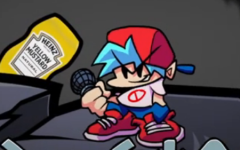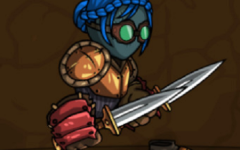Advertisement
Human Expenditure Program
Advertisement

Human Expenditure Program is a narrative-driven clicker game that turns a simple mechanic into a disturbing exploration of choice and consequence. Acting as the sequel to Blood Money, it once again places the player in front of Harvey Harvington, whose fate is tied to every click. The game transforms what would normally be mindless repetition into a tense process where progress is measured in currency and in moral cost.
Narrative Direction
The story of Human Expenditure Program expands the scope of the first game. Where Blood Money focused on raising money for survival, this sequel introduces a larger framework that asks why the program exists and what Harvey’s role has become within it. Each milestone gradually reveals more about the hidden system behind the booth. By following different paths, players encounter clues that suggest multiple interpretations, leaving the final meaning open to reflection.
Mechanics And Structure
The gameplay keeps the core loop of clicking for income and spending it on upgrades, but with new layers that make every decision feel heavier. Some upgrades offer faster progress but lead to darker consequences. Others slow growth but may open alternate outcomes. The combination of incremental progress and branching consequences makes the game both addictive and unsettling.
Key features of Human Expenditure Program include:
- A continuation of Harvey Harvington’s story.
- Clicking mechanics with narrative weight.
- Upgrades that carry hidden consequences.
- Branching storylines with multiple possible endings.
- A disturbing atmosphere built through sound and visual cues.
Emotional Impact
For players, Human Expenditure Program delivers a mix of curiosity and discomfort. Every action feels purposeful, as if the game is judging performance and intent. Watching Harvey’s expressions and responses adds tension, creating a sense of responsibility even in a genre usually free of consequence. Replay value comes from exploring different upgrade paths and discovering how subtle choices shift the narrative tone.
Role In The Genre
Human Expenditure Program occupies a unique position in the world of indie games by blending the accessibility of a clicker with the weight of psychological storytelling. It challenges players to think about the cost of progress and the hidden meaning behind repetitive actions. By expanding on the foundation of Blood Money, it demonstrates how a simple system can be transformed into a tool for moral reflection. In doing so, it redefines what a clicker game can represent in the broader gaming landscape.






















































































































































